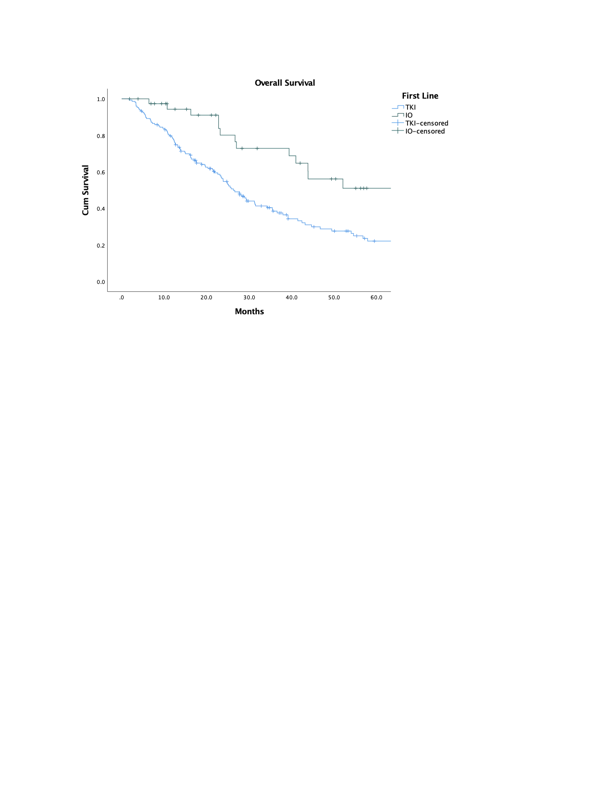Back
Poster, Podium & Video Sessions
Kidney Cancer: Epidemiology & Evaluation/Staging/Surveillance II
PD18-01: Cytoreductive Nephrectomy in patients receiving TKI therapy versus Immune Checkpoint Inhibitor Therapy: Analysis of the REMARCC Registry
Saturday, May 14, 2022
7:00 AM – 7:10 AM
Location: Room 255
Margaret Meagher*, San Diego, CA, Andrea Minervini, Florence, Italy, Maria Mir, Giacomo Rebez, Valencia, Spain, Riccardo Autorino, Richmond, VA, Riccardo Campi, Florence, Italy, Maximilian Kriegmair, Mannheim, Germany, Estefania Linares, Vital Hevia, Madrid, Spain, Mireia Musquera, Mauricio D'Anna, Barcelona, Spain, Eduard Rousel, Maarten Albersen, Leuven, Belgium, Nicola Pavan, Francesco Claps, Trieste, Italy, Alessandro Antonelli, Verona, Italy, Michele Marchioni, Chieti, Italy, Selcuk Erdem, Istanbul, Turkey, Ithaar Derweesh, San Diego, CA

Margaret Frances Meagher, MD
University of California San Diego
Podium Presenter(s)
Introduction: Utility of cytoreductive nephrectomy (CN) in metastatic renal cell carcinoma (mRCC) has been called into question utilizing data from patients treated with tyrosine kinase inhibitor (TKI) therapy as first line. We sought to compare outcomes of CN in patients who underwent TKI versus those who underwent Immune Checkpoint inhibitor (ICI) therapy.
Methods: Multicenter retrospective analysis of patients from the REMARCC (REgistry of MetAstatic RCC) database. The cohort was divided into patients receiving TKI vs. ICI as first-line therapy. Primary outcome was all-cause mortality (ACM)/overall survival (OS). Secondary outcomes were cancer-specific mortality (CSM)/cancer-specific survival (CSS) and recurrence-free survival (RFS). Cox proportional hazards multivariable analysis (MVA) was used to elucidate predictive factors for ACM, CSM, and RFS. Kaplan Meier Analysis (KMA) was performed to analyze 5-year OS, CSS, and RFS.
Results: 189 patients were analyzed (149 TKI/40 ICI). No differences were noted between groups with respect to age (p=0.569), sex (p=0.082), number of metastases at diagnosis (p=0.310), or baseline ECOG performance status (p=0.177). Groups did not differ with respect to neoadjuvant or adjuvant therapy (p=0.073). MVA demonstrated increasing number of metastases at diagnosis (HR=1.04, p=0.022) as an independent risk factor for ACM, while receipt of ICI was associated with improved ACM (HR=0.41, p=0.019). Increasing number of metastases at diagnosis was associated with worsened CSM (HR=1.04, p=0.017), while increasing BMI (HR=0.95, p=0.049) and receipt of ICI (HR=0.015, p=0.001) were independently associated with improved CSM. Poorer ECOG status at diagnosis (HR=1.88, p=0.017) was independently associated with increased risk for recurrence. KMA revealed significantly improved 5-year OS (51% vs. 22%, p<0.001), CSS (82% vs. 36%, p<0.001) for patients who received ICI vs TKI, respectively.
Conclusions: Patients who received ICI had improved ACM and CSM in the setting of cytoreductive nephrectomy. While further investigation is requisite, our findings suggest that a subset of patients may benefit from ICI compared to TKI in the setting of cytoreductive nephrectomy.
Source of Funding: Stephen Weissman Kidney Cancer Research Fund

Methods: Multicenter retrospective analysis of patients from the REMARCC (REgistry of MetAstatic RCC) database. The cohort was divided into patients receiving TKI vs. ICI as first-line therapy. Primary outcome was all-cause mortality (ACM)/overall survival (OS). Secondary outcomes were cancer-specific mortality (CSM)/cancer-specific survival (CSS) and recurrence-free survival (RFS). Cox proportional hazards multivariable analysis (MVA) was used to elucidate predictive factors for ACM, CSM, and RFS. Kaplan Meier Analysis (KMA) was performed to analyze 5-year OS, CSS, and RFS.
Results: 189 patients were analyzed (149 TKI/40 ICI). No differences were noted between groups with respect to age (p=0.569), sex (p=0.082), number of metastases at diagnosis (p=0.310), or baseline ECOG performance status (p=0.177). Groups did not differ with respect to neoadjuvant or adjuvant therapy (p=0.073). MVA demonstrated increasing number of metastases at diagnosis (HR=1.04, p=0.022) as an independent risk factor for ACM, while receipt of ICI was associated with improved ACM (HR=0.41, p=0.019). Increasing number of metastases at diagnosis was associated with worsened CSM (HR=1.04, p=0.017), while increasing BMI (HR=0.95, p=0.049) and receipt of ICI (HR=0.015, p=0.001) were independently associated with improved CSM. Poorer ECOG status at diagnosis (HR=1.88, p=0.017) was independently associated with increased risk for recurrence. KMA revealed significantly improved 5-year OS (51% vs. 22%, p<0.001), CSS (82% vs. 36%, p<0.001) for patients who received ICI vs TKI, respectively.
Conclusions: Patients who received ICI had improved ACM and CSM in the setting of cytoreductive nephrectomy. While further investigation is requisite, our findings suggest that a subset of patients may benefit from ICI compared to TKI in the setting of cytoreductive nephrectomy.
Source of Funding: Stephen Weissman Kidney Cancer Research Fund


.jpg)
.jpg)